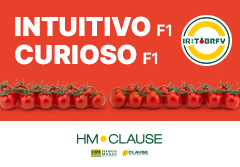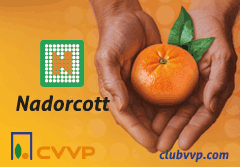The company from Murcia expects to produce a volume of 6 million kilos of nectarines, with quality as its priority.
At Grupo Paloma, the stone fruit campaign started this year a week earlier compared to the normal dates. The first forecasts predict that fruit quality will be very high this year, as each of the crop phases has shown optimal development: the necessary hours of cold have been reached, blossoming has been good and the thinning tasks and handling have all contributed to a correct evolution of the crop. As a matter of fact, they are predicting that the 2020 season will fulfil the high-quality standards that are a priority for the group and will reach a potential volume of 6 million kilos.
The company from Murcia has specialised in the production of yellow nectarines, covering 300 hectares (200 of them in full production). A total of 150 ha are devoted to early production in Mazarrón and Águilas, while the rest of its crop area is distributed out between Lorca (medium) and Blanca (late). A campaign that lasts just 8 weeks. 100% is grown under netting, and everything they sell comes from their own production. “Paloma doesn’t buy a single kilo from outside its production.”
The reason behind its single-product strategy in stone fruit is due to consumption criteria: “in recent years we have perceived that nectarines have remained stable and, additionally, an important factor is the quality of the varieties on the market,” David Franco, head of the Sales Department, explained to Fruit Today.
The company is developing a variety conversion on 100 ha (50 this year and the remainder in 2021) to remove older materials, replacing them with others that provide the flavour features that characterise the brand.
In general, they are not seeking early crops, as the sector has been doing in the past, but rather they want quality. “Today, the stone fruit market cannot be understood in any other way. The supermarkets are concerned about having the best-quality fruit on their shelves, and they have moved from a low tolerance level to a highly demanding one that is common to all the products.”
Between 80-85% of Paloma’s stone fruit is exported, with Germany, Scandinavia, Italy and France as is main markets.
























